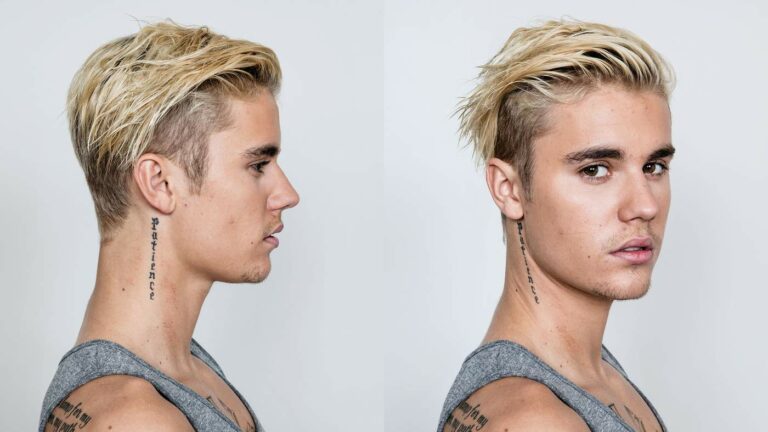Justin Bieber’s journey from a small-town Canadian boy to a global phenomenon is one of the most fascinating stories in modern music history. Rising from obscurity at a young age, Bieber quickly became a teen sensation, dominating pop culture with his infectious melodies, charm, and swoon-worthy looks. Over time, his career has evolved, and so has he—maturing as an artist, facing challenges in the spotlight, and transforming into a global superstar with an enduring influence on pop music.
In this article, we will explore Justin Bieber’s evolution, tracing his career trajectory from the early days of teenage stardom to his reinvention as one of the most successful and versatile musicians of his generation. This is the story of how a young YouTube sensation grew into a musical icon and cultural powerhouse, solidifying his place among the biggest names in the music industry.
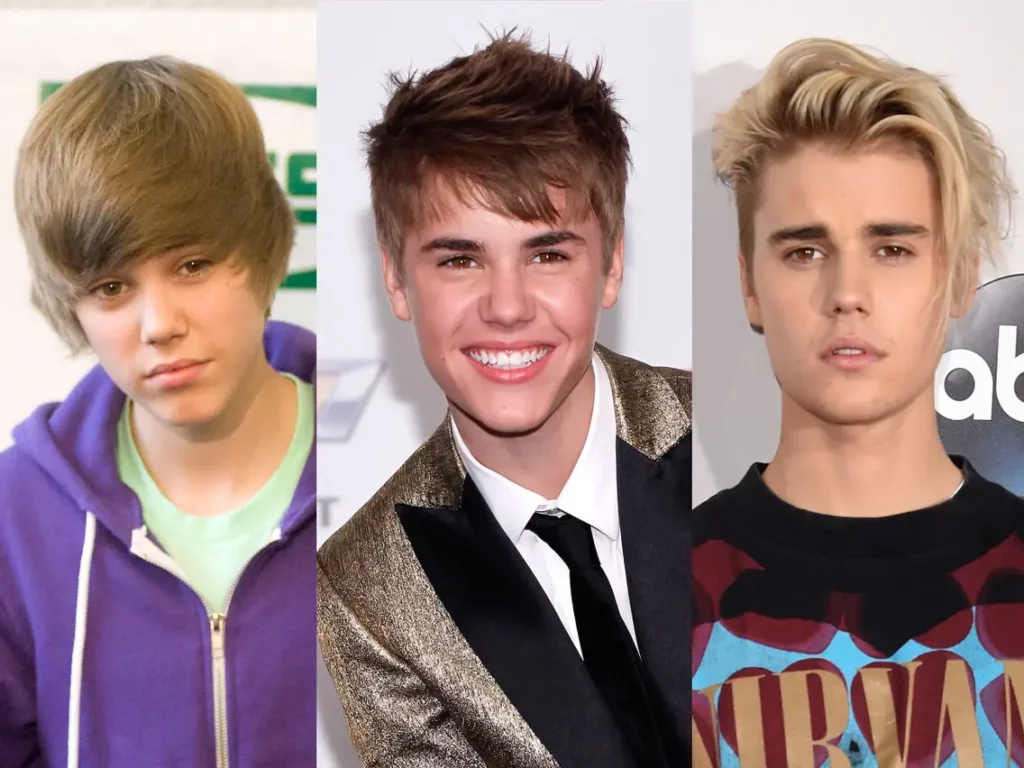
The Early Days: From YouTube Star to Global Sensation
Justin Bieber’s rise to fame began with a single mother, a camera, and YouTube. Born on March 1, 1994, in Stratford, Ontario, Bieber’s early years were far removed from the glitz and glamour of the music industry. Raised by his mother, Pattie Mallette, Bieber displayed an early interest in music, learning to play drums, guitar, piano, and trumpet. His talent was undeniable, but it wasn’t until he began posting videos of himself covering songs on YouTube that things took off.
At the age of 12, Bieber’s videos began to attract attention, and it wasn’t long before Scooter Braun, a talent manager, stumbled upon one of these clips. Impressed by Bieber’s vocal ability and charisma, Braun contacted Mallette, and soon, the boy with the mop of hair and an angelic voice was on his way to stardom.
In 2009, Justin Bieber released his first single, One Time, under the guidance of R&B star Usher, who had signed Bieber to his record label. The song was a hit, catapulting Bieber into the limelight and cementing his place as a teen heartthrob. That same year, his debut EP My World dropped, featuring hits like One Less Lonely Girl and Favorite Girl. Bieber’s wholesome image, combined with his catchy pop songs, made him a favourite among young audiences, and his fanbase—known as “Beliebers”—grew rapidly.
With his signature haircut and irresistible charm, Bieber quickly became a household name. His debut album, My World 2.0, released in 2010, solidified his status as a teen idol. The album’s lead single, Baby, featuring Ludacris, became a cultural phenomenon, making Bieber the face of a new generation of pop music. As his fame skyrocketed, Bieber faced the challenges of navigating global superstardom at an incredibly young age.
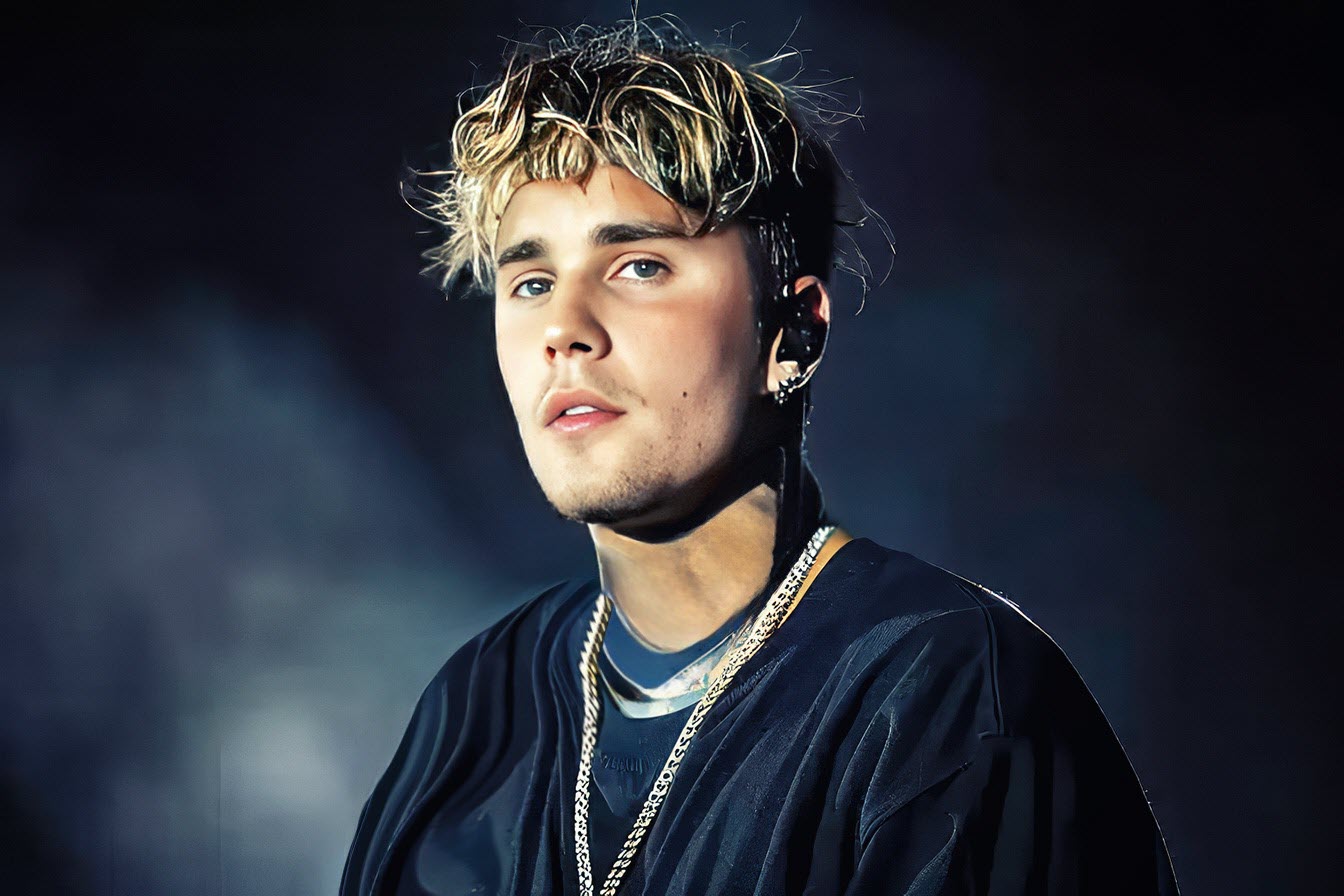
Navigating Fame and Finding His Voice
As Bieber’s fame continued to grow, so did the pressures of living in the public eye. By the time he released his second studio album, Under the Mistletoe (2011), he had become a full-fledged teen icon, but there were hints that Bieber was eager to shed his “boy-next-door” image and mature as an artist. Under the Mistletoe was a Christmas album, showcasing Bieber’s versatility and hinting at his desire to evolve musically.
However, the transition from teen idol to respected artist is never easy. By 2012, as he prepared to release his third studio album, Believe, Bieber was facing mounting scrutiny from the media. He had grown older, and with age came new challenges. The media once infatuated with his innocent charm, began focusing more on his personal life, controversies, and legal troubles.
Still, Believe marked a turning point in Bieber’s career. It was an intentional step away from the bubblegum pop of his early work and a foray into a more mature sound. Featuring collaborations with artists like Nicki Minaj, Big Sean, and Drake, Believe showcased a new side of Bieber—more confident, experimental, and willing to take risks. Tracks like Boyfriend and As Long As You Love Me reflected this shift, with darker production, edgier lyrics, and a stronger R&B influence.
Believe not only signalled Bieber’s growth as an artist but also helped expand his fanbase beyond the teenage girls who had idolized him from the start. The album debuted at number one on the Billboard 200, solidifying his status as a global pop star with real staying power. However, as Bieber navigated the transition to adulthood, he also found himself at the centre of numerous controversies.
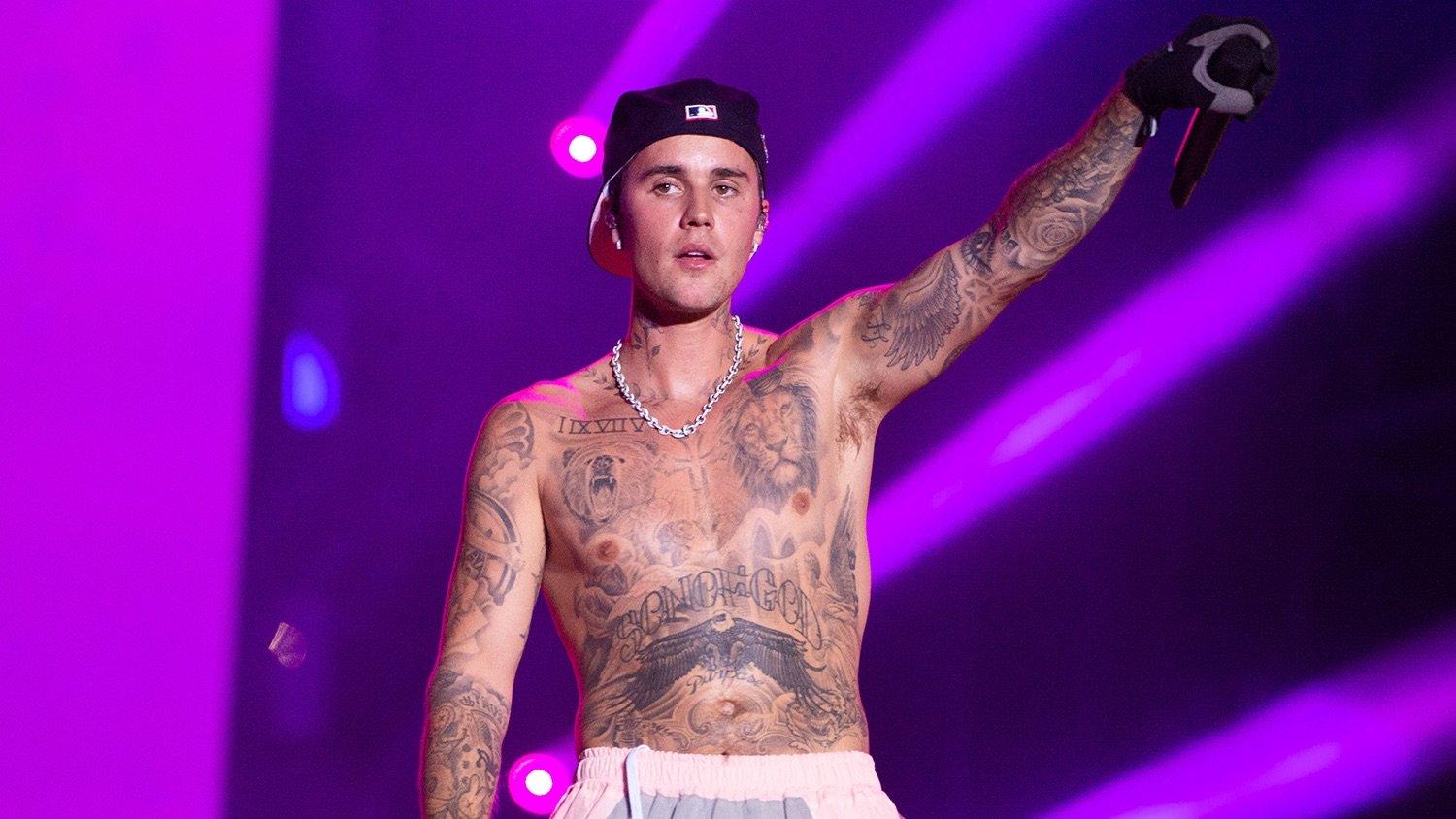
Controversies, Challenges, and Redemption
The years following the release of Believe were tumultuous for Justin Bieber. As he transitioned from teen idol to young adult, his behaviour often landed him in hot water. A string of legal issues, reckless behaviour, and high-profile relationships put Bieber in the media spotlight for all the wrong reasons. His public image began to suffer as the young star struggled with the pressures of fame.
From altercations with paparazzi to multiple arrests, Bieber’s personal struggles overshadowed his music career. By 2014, headlines about his run-ins with the law, reckless driving, and outbursts dominated the news cycle. His once-squeaky-clean image had taken a serious hit, and many questioned whether his career would survive the backlash.
Despite these challenges, Bieber remained resilient. Behind the scenes, he was working on new music and focusing on his personal growth. During this period, he turned to faith, mentorship, and therapy, striving to find a balance between his public persona and private life. In a move that surprised many, Bieber issued a public apology, admitting to his mistakes and expressing a desire to change.
The turning point came in 2015 when Bieber released his fourth studio album, Purpose. The album was a declaration of Bieber’s personal and professional redemption, signalling his return to the spotlight on his own terms. With hits like Sorry, What Do You Mean?, and Love Yourself, Purpose marked a new chapter in Bieber’s career. The music was mature, reflective, and deeply personal, resonating with fans and critics alike.
The purpose was not just a commercial success—it was a cultural reset for Bieber. The album debuted at number one on the Billboard 200 and earned him several accolades, including Grammy nominations. More importantly, it allowed him to regain control of his narrative and reposition himself as a serious artist. Bieber’s ability to confront his demons and grow as a person endeared him to fans who had followed his journey from the beginning.
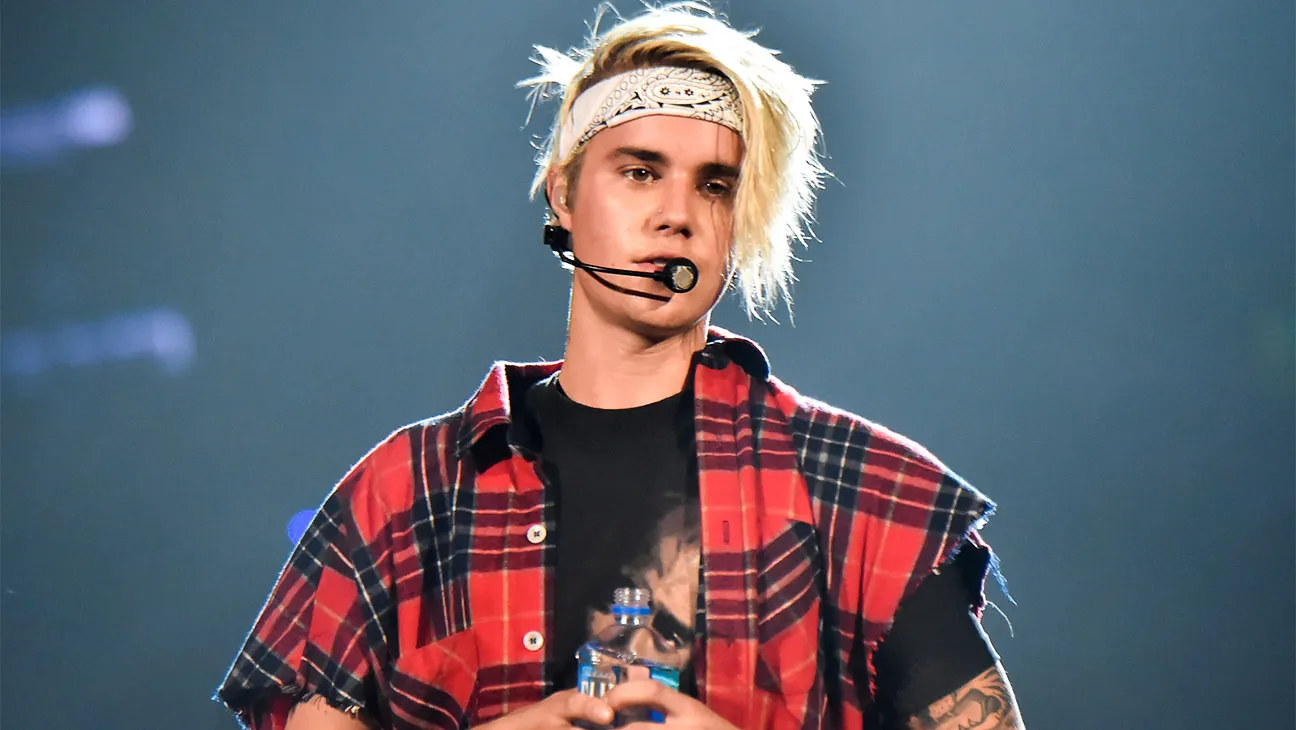
Reinvention and Artistic Growth
In the years following the release of Purpose, Justin Bieber cemented his place as one of the biggest names in the music industry. With each new project, he demonstrated that he was more than just a teen sensation—he was a versatile artist capable of adapting to different musical styles and trends.
One of the most significant aspects of Bieber’s artistic evolution has been his willingness to collaborate with a diverse range of artists and explore new genres. Over the years, he has collaborated with artists from different musical backgrounds, including DJ Snake (Let Me Love You), Major Lazer (Cold Water), Ed Sheeran (I Don’t Care), and Luis Fonsi (Despacito). His work with Fonsi on the remix of Despacito became one of the biggest hits of his career, showcasing his ability to bridge cultural gaps and embrace Latin pop influences.
In 2020, Bieber released his fifth studio album, Changes, marking yet another evolution in his sound. With Changes, Bieber leaned into a more R&B-focused direction, exploring themes of love, personal growth, and faith. The album was a deeply personal project, heavily influenced by his marriage to model Hailey Baldwin. Songs like Intentions and Yummy showcased his maturation as both a person and an artist, while still maintaining the catchy, radio-friendly appeal that made him famous.
Although Changes received mixed reviews from critics, it was a commercial success and further solidified Bieber’s standing as a global superstar. The album demonstrated his ability to remain relevant in an ever-changing music industry while staying true to himself and his personal experiences.
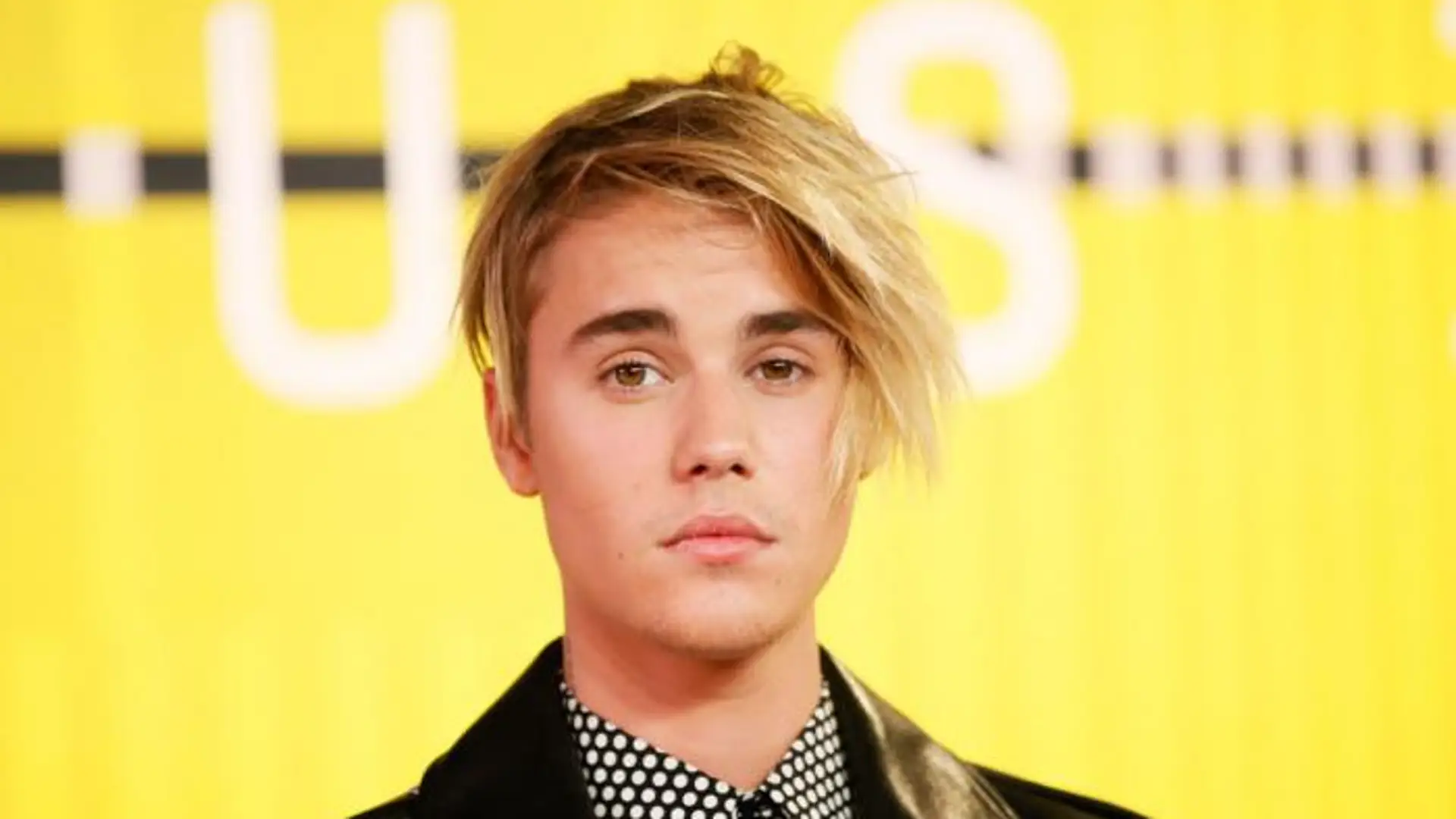
A Lasting Legacy: Bieber Today and Beyond
Today, Justin Bieber stands as one of the most successful and influential artists of his generation. His journey from YouTube sensation to global superstar has been marked by incredible highs and difficult lows, but through it all, Bieber has continued to grow and evolve. He has transformed from a teenage heartthrob into a respected musician with an impressive body of work.
In 2021, Bieber released his sixth studio album, Justice, which further showcased his versatility and growth as an artist. Justice saw Bieber return to a more pop-driven sound, blending elements of electronic music, R&B, and hip-hop. With hits like Peaches and Holy, the album continued to dominate the charts and solidified Bieber’s place as a consistent hitmaker.
What sets Justin Bieber apart from many of his peers is his ability to adapt and reinvent himself while staying true to his core identity. Over the years, he has navigated the pressures of fame, personal struggles, and industry changes with resilience and determination. Bieber’s openness about his mental health, personal challenges, and faith has also endeared him to a new generation of fans who appreciate his vulnerability.
Bieber’s legacy goes beyond just his music. He has used his platform to advocate for mental health awareness, racial justice, and social causes that are important to him. As he continues to evolve as an artist and a person, Bieber remains a powerful force in pop culture, with a lasting influence on the music industry.
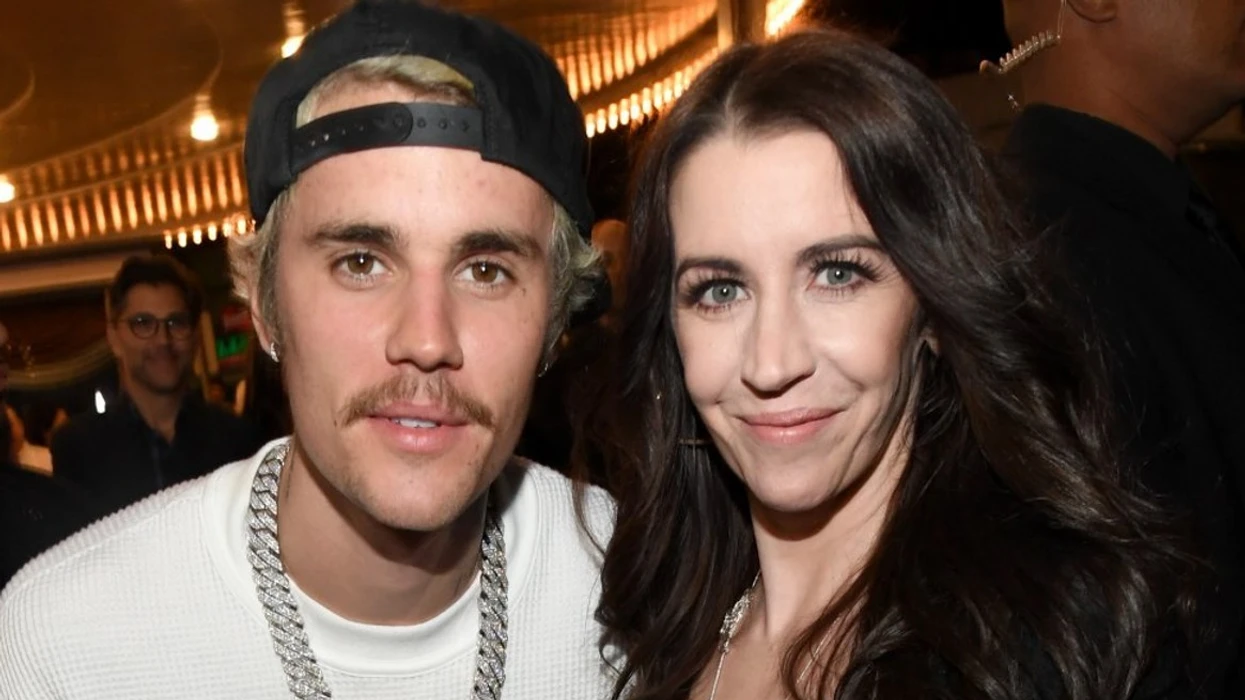
Exploring New Musical Frontiers
Justin Bieber’s musical journey has never been stagnant. Over the years, he’s consistently explored new soundscapes, pushing the boundaries of pop music by incorporating elements of R&B, EDM, hip-hop, and reggaeton. His adaptability has played a huge role in ensuring his continued relevance in an ever-changing music industry.
The 2017 remix of Despacito, a collaboration with Puerto Rican artist Luis Fonsi, exemplifies Bieber’s willingness to embrace new genres and cultures. The track became a global phenomenon, breaking records and further broadening Bieber’s appeal to international audiences. The success of Despacito demonstrated his ability to stay ahead of musical trends while also showcasing his versatility as a vocalist.
Bieber’s collaborations with artists from various musical genres have also helped solidify his status as a global superstar. Tracks like I Don’t Care with Ed Sheeran, Let Me Love You with DJ Snake, and Cold Water with Major Lazer show how effortlessly Bieber can move between genres and work with diverse artists. His willingness to collaborate with other musicians and adapt to different musical styles is one of the reasons his music has had such a far-reaching impact.
This exploration of new musical frontiers also extends to his creative process. Bieber has increasingly taken on more roles behind the scenes, serving not only as a vocalist but also as a songwriter and producer on many of his tracks. His input on the creative direction of his albums reflects his growth as an artist who is invested in every aspect of his craft.
In 2021, Bieber continued to surprise audiences by releasing Freedom, a six-track gospel-inspired EP, just days after Justice. The EP was an unexpected exploration of his faith, featuring themes of spirituality, redemption, and healing. Bieber’s decision to release a faith-based project, separate from his mainstream pop work, showed his desire to express himself authentically, regardless of commercial expectations. With Freedom, Bieber demonstrated that his evolution as an artist is far from complete—he’s constantly exploring new ways to express his personal journey through his music.
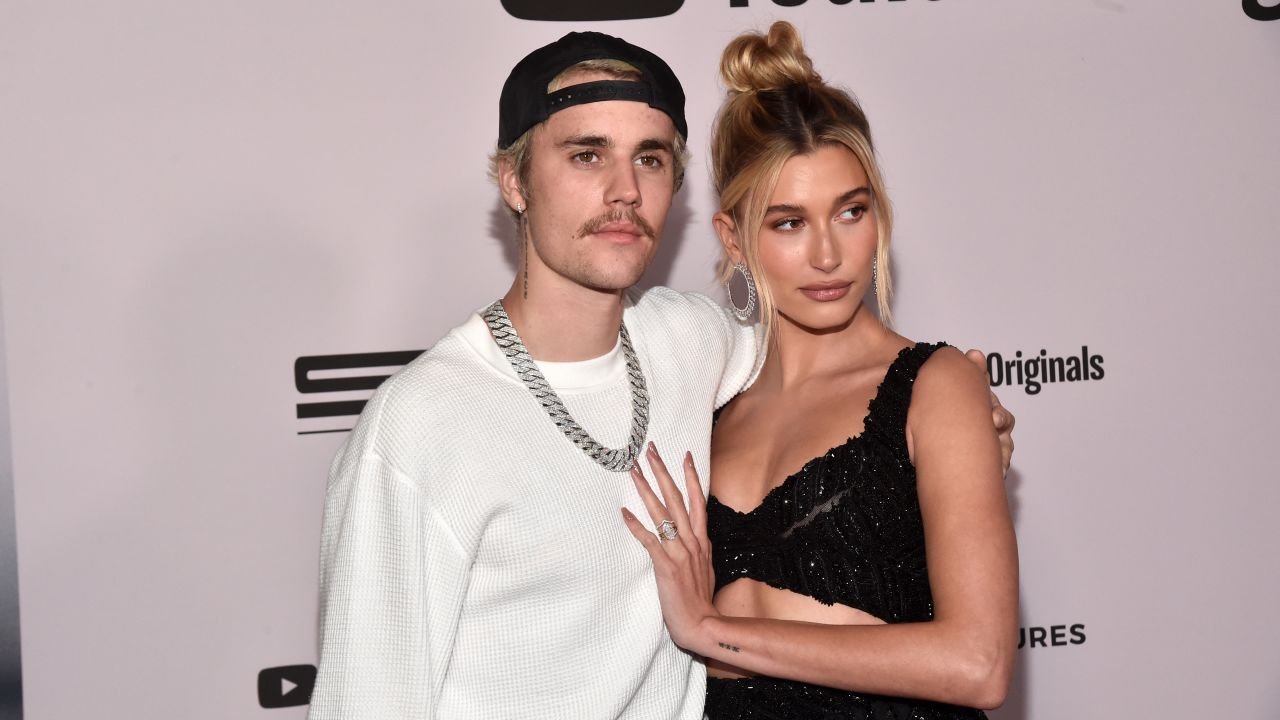
The Role of Personal Life in His Music
One of the most significant aspects of Justin Bieber’s evolution is how his personal life has intertwined with his music. As a young star, Bieber was often the subject of media scrutiny, with every relationship, public incident, or personal challenge documented and dissected in the tabloids. While this attention could have broken many young artists, Bieber has used his experiences to fuel his creative process, turning his struggles into powerful songs that resonate with his audience.
His marriage to Hailey Baldwin in 2018 marked a major turning point in both his personal life and his music. Many of the songs on Changes (2020) and Justice (2021) are inspired by his relationship with Baldwin, with tracks like Intentions, Yummy, and Anyone offering heartfelt declarations of love and commitment. These albums present a more mature, grounded version of Bieber—an artist who has found stability and happiness in his personal life and isn’t afraid to showcase it in his work.
However, Bieber’s music isn’t just about celebrating love and personal growth. He has also used his platform to open up about his struggles with mental health, anxiety, and the pressures of fame. In tracks like Lonely, Bieber reflects on the isolation and pain he experienced as a young star who was thrust into the global spotlight at an early age. His willingness to be vulnerable and share his battles has endeared him to fans, many of whom relate to the themes of self-doubt, loneliness, and redemption that run through his recent work.
In addition to his mental health journey, Bieber has also used his platform to speak out on social issues. Songs like MLK’s Interlude on Justice include powerful messages about equality, hope, and justice. His commitment to social activism is another aspect of his evolution that reflects his growing awareness of his influence and responsibility as a global figure.
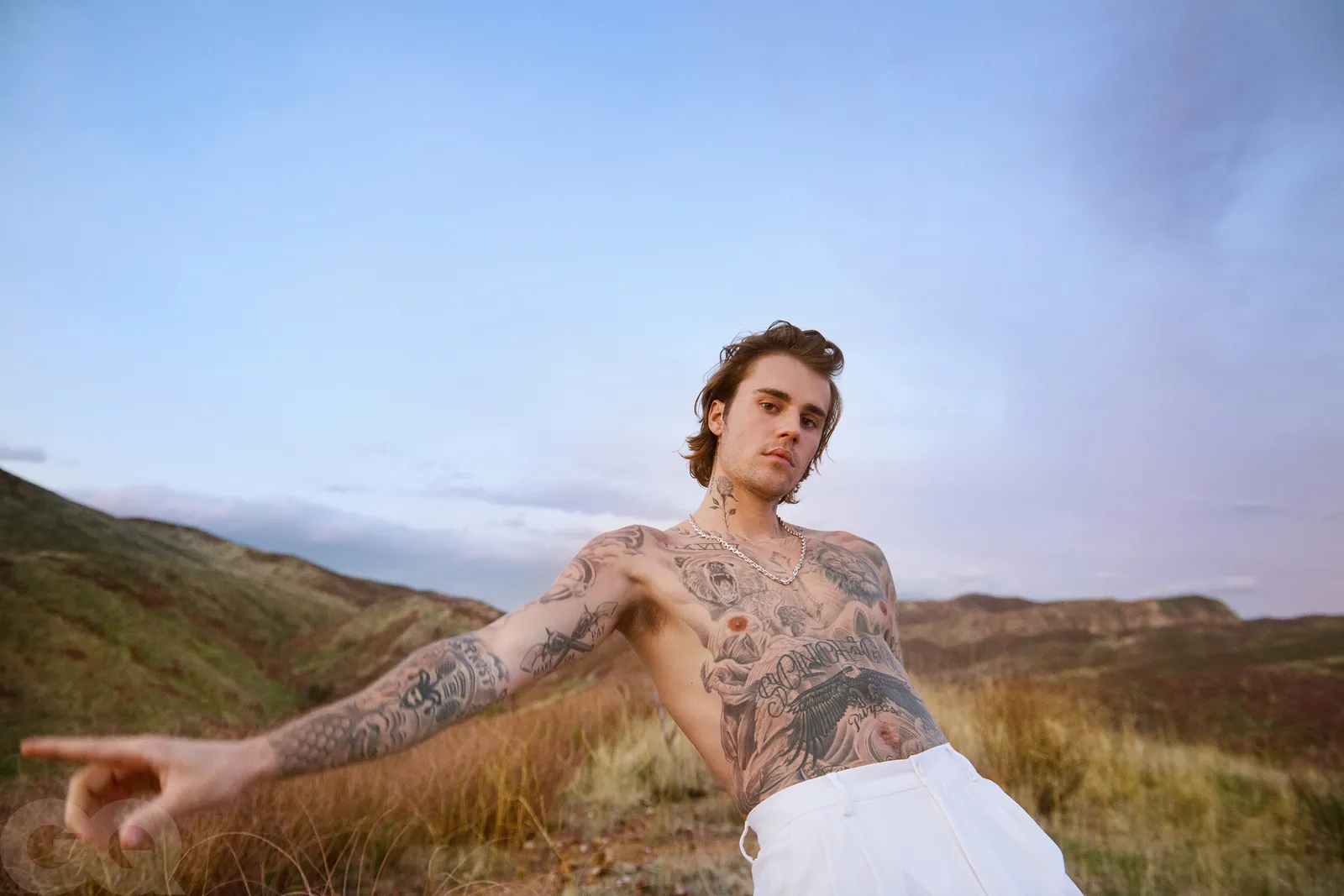
Chart Dominance and Commercial Success
While Bieber’s personal and artistic growth has been impressive, his commercial success has been equally remarkable. Despite the ups and downs of his career, he has remained a dominant force on the charts, regularly releasing singles that climb to the top of the Billboard charts. From the early days of Baby to the massive global success of Sorry, Bieber’s ability to consistently deliver chart-topping hits is a testament to his lasting appeal.
Throughout his career, Bieber has racked up numerous accolades, including Grammy Awards, Billboard Music Awards, American Music Awards, and MTV Video Music Awards. He’s sold more than 150 million records worldwide, making him one of the best-selling music artists of all time. His success has transcended geographic boundaries, with his music reaching fans in virtually every corner of the globe.
One of the most significant aspects of Bieber’s commercial success is how he has adapted to the rise of streaming platforms. As one of the first major artists to emerge in the age of YouTube, Bieber has a unique understanding of digital media and how to engage with his fanbase online. He has maintained a strong presence on social media, where he interacts with fans directly and promotes his music. Bieber was also an early adopter of streaming services like Spotify and Apple Music, using these platforms to ensure that his music reaches a global audience.
His 2020 single Intentions, featuring Quavo, became a global hit, further solidifying his ability to craft songs that appeal to both casual listeners and die-hard fans. With over a decade in the music industry, Bieber continues to dominate the charts, showing that his staying power is as much a result of his talent as it is his ability to evolve and adapt to the ever-changing landscape of popular music.
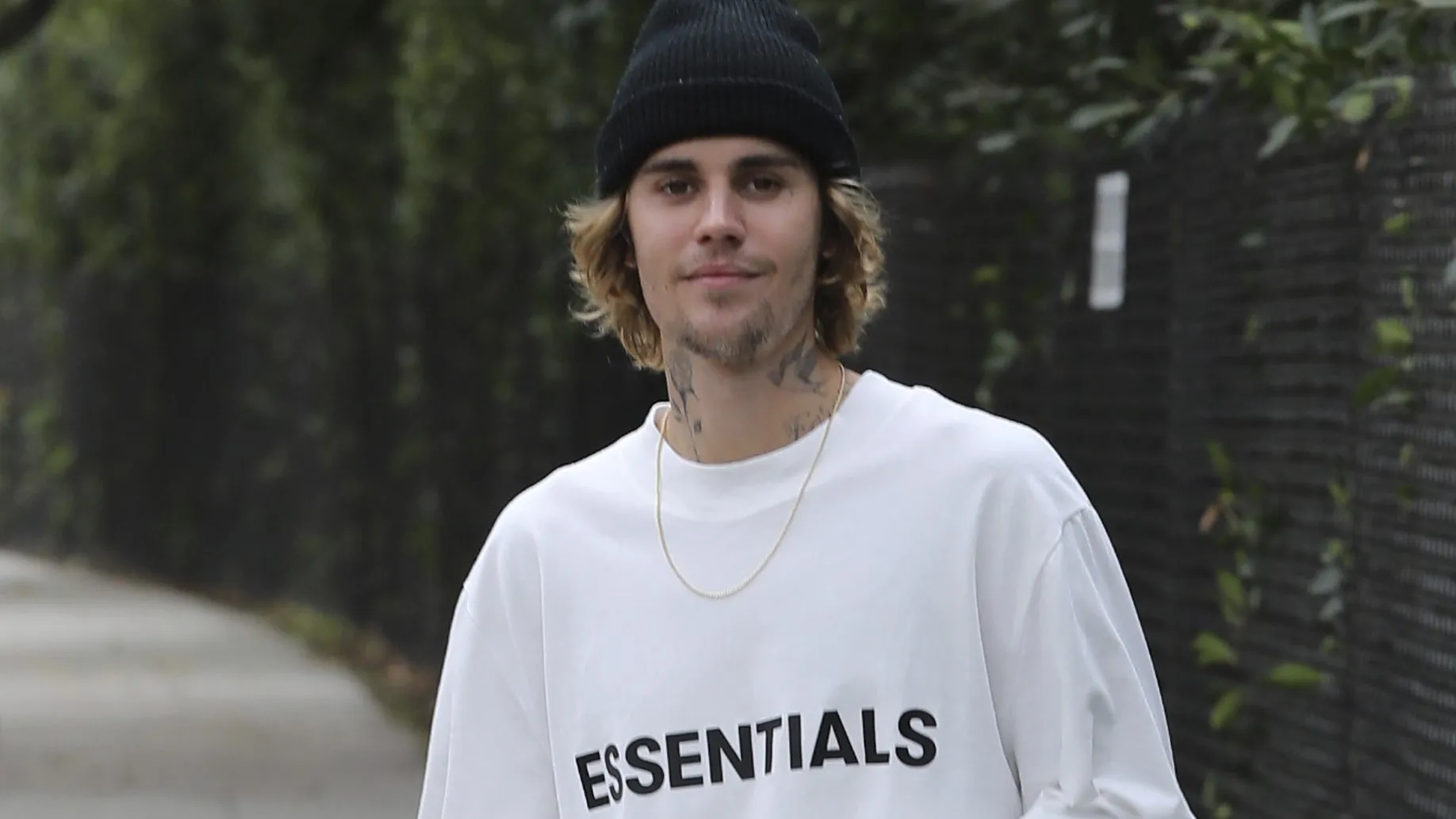
Philanthropy and Giving Back
While Justin Bieber’s career has been marked by incredible success, his impact goes beyond the music charts. As his fame has grown, Bieber has used his platform to give back to the community and support a variety of charitable causes. His philanthropy has been an important part of his legacy, reflecting his desire to make a positive difference in the world.
Bieber has long been involved in charitable efforts, supporting causes such as children’s hospitals, disaster relief efforts, and anti-bullying campaigns. Early in his career, he worked with organizations like Pencils of Promise to help build schools in underserved communities. Bieber’s charitable work also extends to his Beliebers—he often partners with fans for charitable causes, using his influence to raise awareness and funds for those in need.
In 2020, amid the COVID-19 pandemic, Bieber was actively involved in supporting healthcare workers and those affected by the virus. He also donated proceeds from his Intentions music video to support Alexandria House, a nonprofit that provides housing for women and children in Los Angeles.
Bieber’s commitment to philanthropy is another layer of his evolution from teen idol to global superstar. As he continues to grow both personally and professionally, his dedication to making a positive impact on the world has only strengthened.
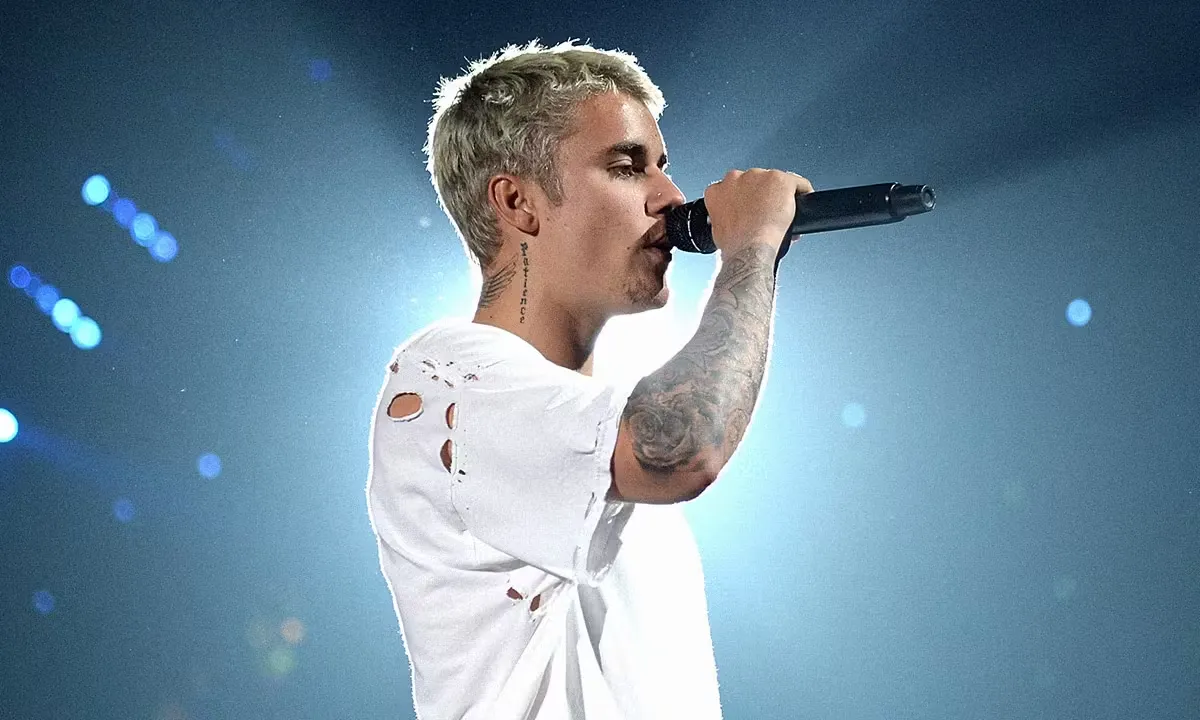
What the Future Holds for Justin Bieber
As Justin Bieber moves forward in his career, the future looks brighter than ever. His musical journey has been marked by growth, reinvention, and a desire to push boundaries, and there’s no sign that he plans to slow down anytime soon. Bieber’s ability to evolve both as an artist and as a person has made him a lasting presence in the music industry and his influence on pop culture is undeniable.
With each new project, Bieber continues to surprise fans and critics alike. Whether he’s exploring new musical styles, collaborating with different artists, or opening up about his personal experiences, Bieber’s evolution is far from over. As he continues to navigate the challenges of fame and build on the lessons he has learned along the way, there’s no doubt that Bieber will remain a dominant force in the music world.
Looking ahead, fans can expect even more from Bieber—whether it’s new music, more collaborations, or continued advocacy for mental health and social justice. His journey from YouTube sensation to global icon is a remarkable story of perseverance, growth, and self-discovery, and it’s one that will continue to inspire future generations of musicians and fans alike.
Justin Bieber’s evolution from a teen heartthrob into a global superstar has been nothing short of extraordinary. Over the past decade, he has faced the challenges of fame, navigated personal struggles, and emerged stronger, more mature, and more versatile than ever. From his early days as the fresh-faced pop star behind hits like Baby, to his triumphant comeback with Purpose, to his continued chart dominance with albums like Justice, Bieber has continually proven that he is a force to be reckoned with in the music industry.
His music reflects his personal growth, while his openness about his struggles with mental health, faith, and love has resonated with fans around the world. Through every phase of his career, Bieber has maintained an unwavering connection with his fanbase, evolving alongside them as both an artist and a person.
As he continues to push the boundaries of his artistry and embrace new challenges, there’s no doubt that Justin Bieber’s legacy as a pop icon will endure for many years to come. He has grown from a boy with a dream into a global phenomenon, and his journey is far from over.
